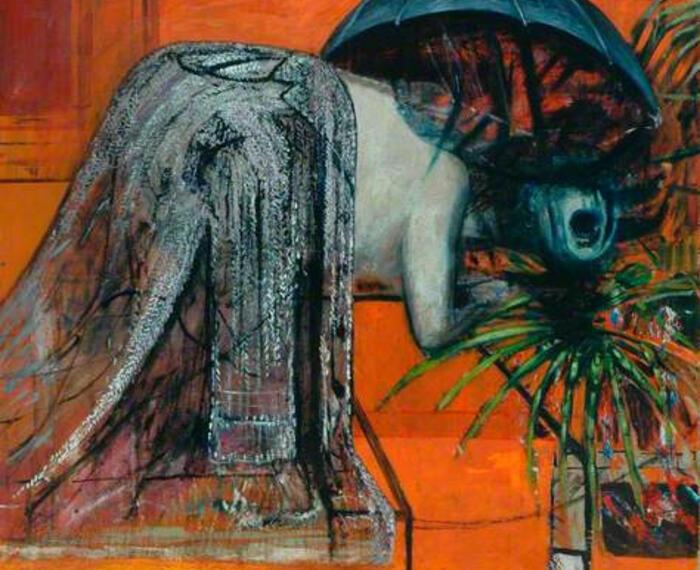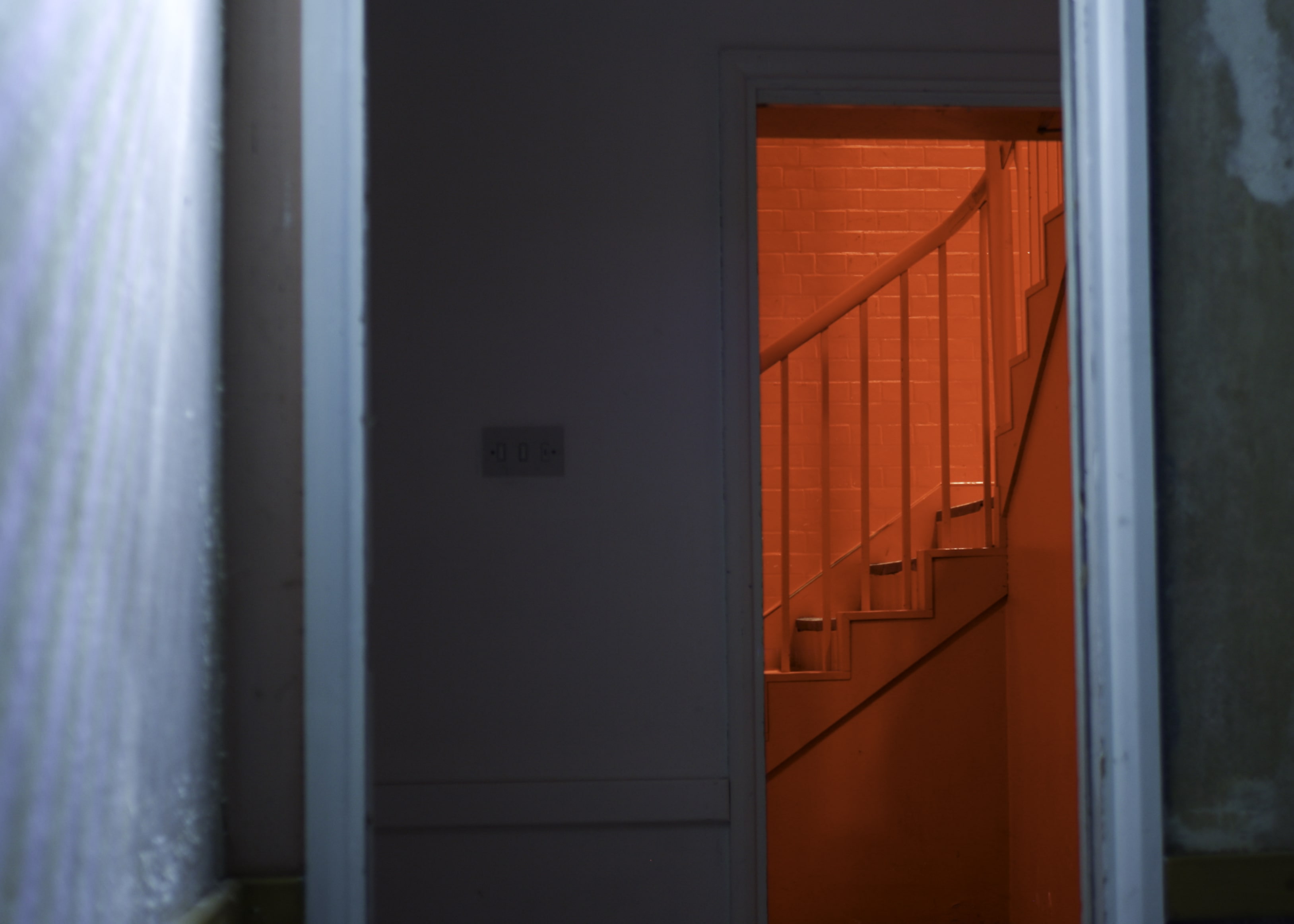


Abbas Zahedi, Ouranophobia SW3, 2020. Installation view at the Chelsea Sorting Office (General Release). Photo: the artist.
Ouranophobia = fear of heaven or the sky
In the heart of Chelsea, between the King’s Road and Sydney Street, Abbas Zahedi has taken over a former Royal Mail sorting office. Based here since March, the building is currently run by an artist-run non-profit organisation called General Release, a collective that organises exhibitions in disused buildings and critically reimagines the spaces around us.
Entering from the car park, a set of double doors leads into a large room. A few chains are a subtle intervention, with a vibrating sound that seems embedded in the room itself. Further along the stairs, wooden floorboards have been lifted and made into an arrow. Following this instruction, the sounds become stronger.
Zahedi’s interventions are minimal, subtle and reflect upon the logic of structures. Like an archaeologist revealing the history of a site, the artist excavates and makes visible the layers, the functions and the psychology of the place. I am standing in the main space, where Royal Mail workers would have sorted the mail, the pumping heart of the building. The soundscape comes from a set of sealed windows that served as a spot from which to observe the workers. Zahedi simultaneously highlights this power dynamic and subverts it: the sound is actually the soundscape of the building itself. By using transducers it is also the sound the wooden floorboards make when Zahedi ‘plays’ them; scratching, banging and tapping. By sealing the windows Zahedi symbolises that there is nothing more to see, no one to order and control anymore, the control here is his own.
The exhibition is an open invitation to viewers to level things out. I take the staircase that leads to a large Victorian window with a rush of excitement. The staircase also refers to another form of power: the minbar, the elevated platforms in a mosque from which the imam delivers their sermon. Here one can face the outside world, or inwards towards the installation and other visitors, breaking up the authority of the exhibition and including the viewer in what is seen. Zahedi is also referring to the 'Johari window’ technique, which helps people better understand their relationship with themselves and others, used primarily in self-help groups and corporate settings as an experimental exercise. Here it seeks to create dialogue and empathy amongst visitors, objects and settings.
The exhibition continues in the basement, a room lit only in the centre by a bar. Three points of light highlight the absence of some of the shelves, which Zahedi used to build a staircase down to this space. A deep sound vibrates throughout the structure of the bar, replacing what would have been the hum and babble of postal workers, as they would come here to socialise. Socialising and working collaboratively is at the heart of Zahedi’s practice. Not only has he worked in a brewery, creating special edition drinks for the Brent Biennial, when I first met him he was cooking Tahdig for more than a dozen of people.
Synthetic sounds are mixed with a lamentation, Islamic mourning prayers that fill the void of this once sociable and collaborative place of work. What are we grieving here and who are we mourning? The building, its use, its workers, or the collective ownership that once put the postal service in state control? Are we grieving personal losses, the ones we loved lost for ever? And are we grieving the hundreds of thousands of victims of the pandemic? Are we grieving all of this, as well as the freedoms of the world before Covid?
Maybe this exhibition, which invites us to interrogate the meaning of things and their logic, as well as excavate meanings and find connections between structures, confronts us with deeper significances. The strange circumstances that we face, like the strange circumstances that made this exhibition possible, prompt questions and remind us of the human ability to adapt, to rethink, to relearn, to accommodate and adjust to these challenging times.
Ilaria Puri Purini
Curator of Programmes
Chelsea Sorting Office, 90-100 Sydney Street, London SW3 6NJ. The exhibition is open on selected dates between Saturday 5 December 2020 and Sunday 17 January 2021. Visitors are required to have a ticket to attend. Register for tickets here.